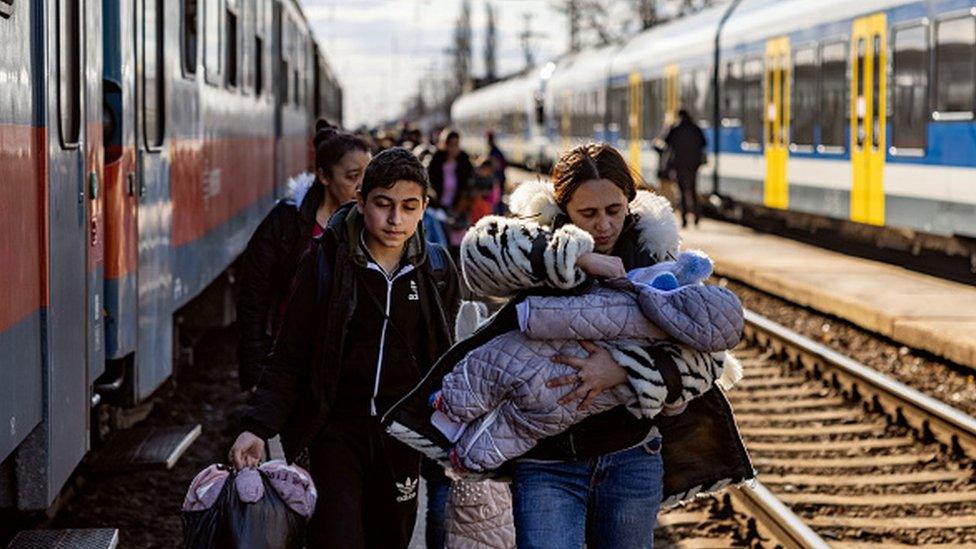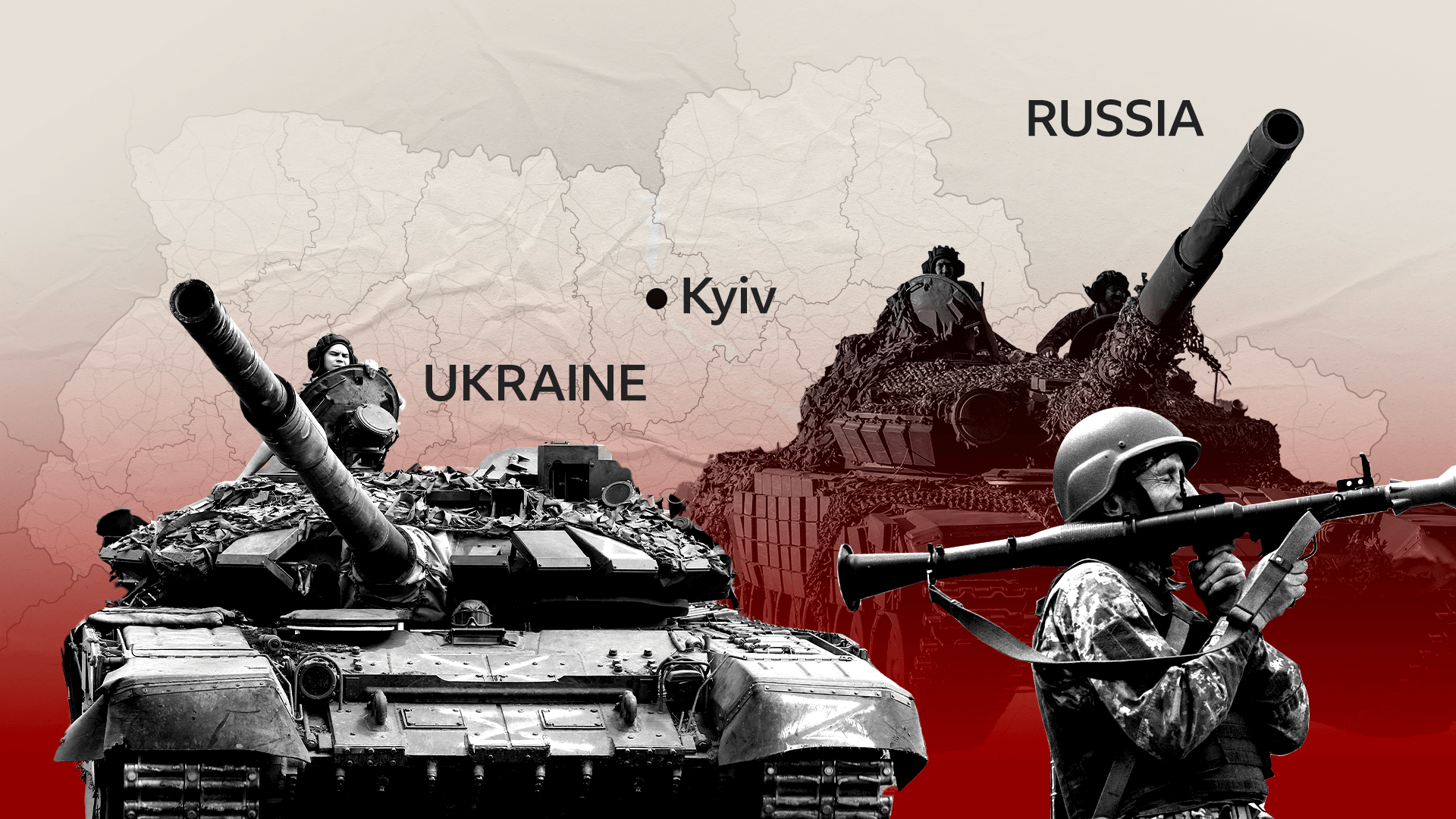Ukraine: The police officer who lost his family in one Russian strike
- Published
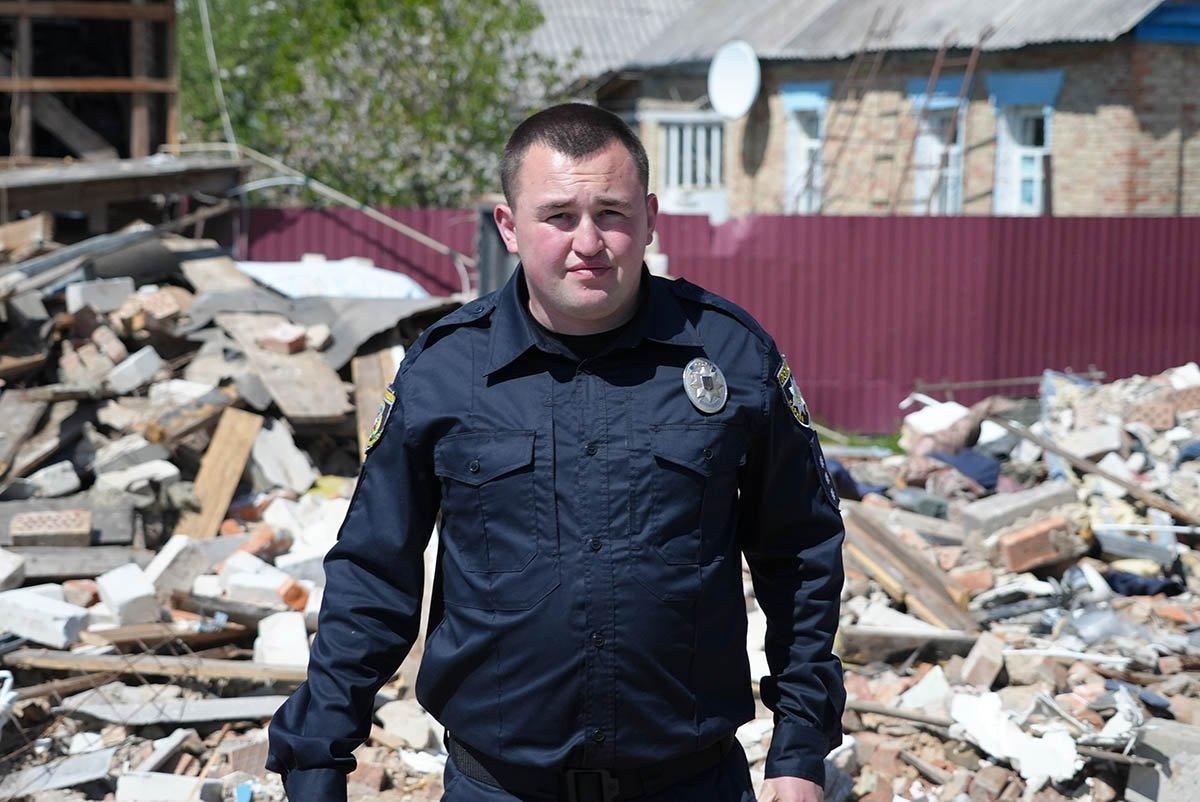
Ivan Simoroz stands on what remains of his family's home

At first, I couldn't see the damage to Ivan Simoroz's parents' home in the Ukrainian town of Borodyanka, near Kyiv. Then I realised that was because there was nothing left that resembled a home.
As the 26-year-old stood on the rubble, in his police uniform, it felt impossible to process the devastation that surrounded him.
This report contains material some readers may find disturbing

"On 26 February, we were chatting at the police station, and then we heard a loud boom," recalls Ivan.
Russia's invasion of Ukraine was two days old and had quickly targeted towns in the Kyiv region as they looked to close in on the capital.
"The ground was shaking, I started calling each of my relatives, my wife, brother, mother, father, grandma - they were all out of reach.
"I realised something bad had happened."
Ivan had heard incoming shelling and knew it had hit something, he just didn't know what.
He drove with his police chief and several colleagues to his house on Tsentralna Street and was met with the sprawling devastation he stands on today.
I ask him what was going through his mind at the time.
"Horror. War. It was very scary and hard to understand. You hoped that someone was still alive, maybe they were hiding in the basement."
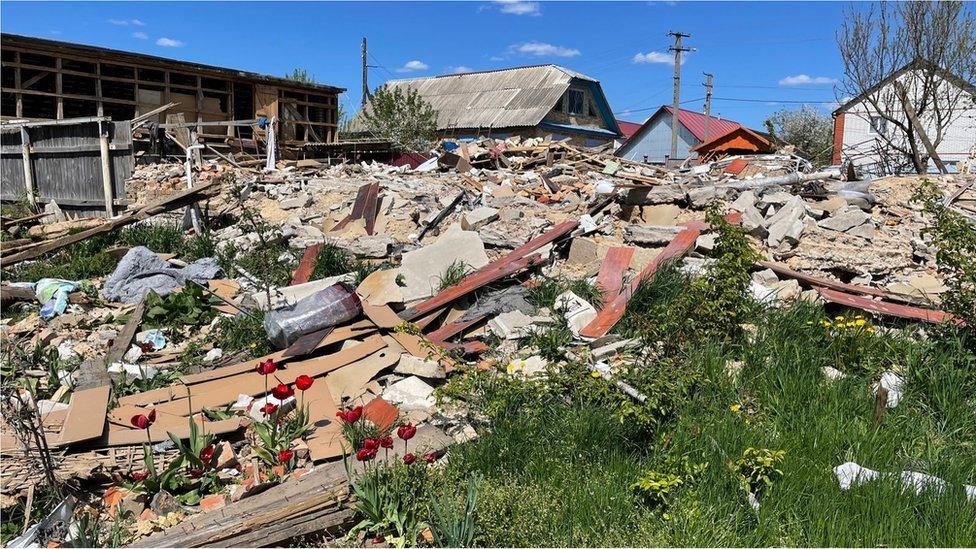
Neighbours and relatives soon arrived to help with the search.
Ivan found his mother first, lying dead over a fridge. Then 200m away he found the body of his younger brother. He'd lost both legs and hands. His beloved dog was sitting in a vegetable patch next to him.
Then his grandma was found, also dead, covered in bricks.
Ivan's aunt found his one-year-old baby daughter, Polina, on a sofa, still breathing.
Then Ivan's wife was found. Then his father. Both dead.
Polina died in hospital shortly afterwards.
Ivan lost six members of his family that day.
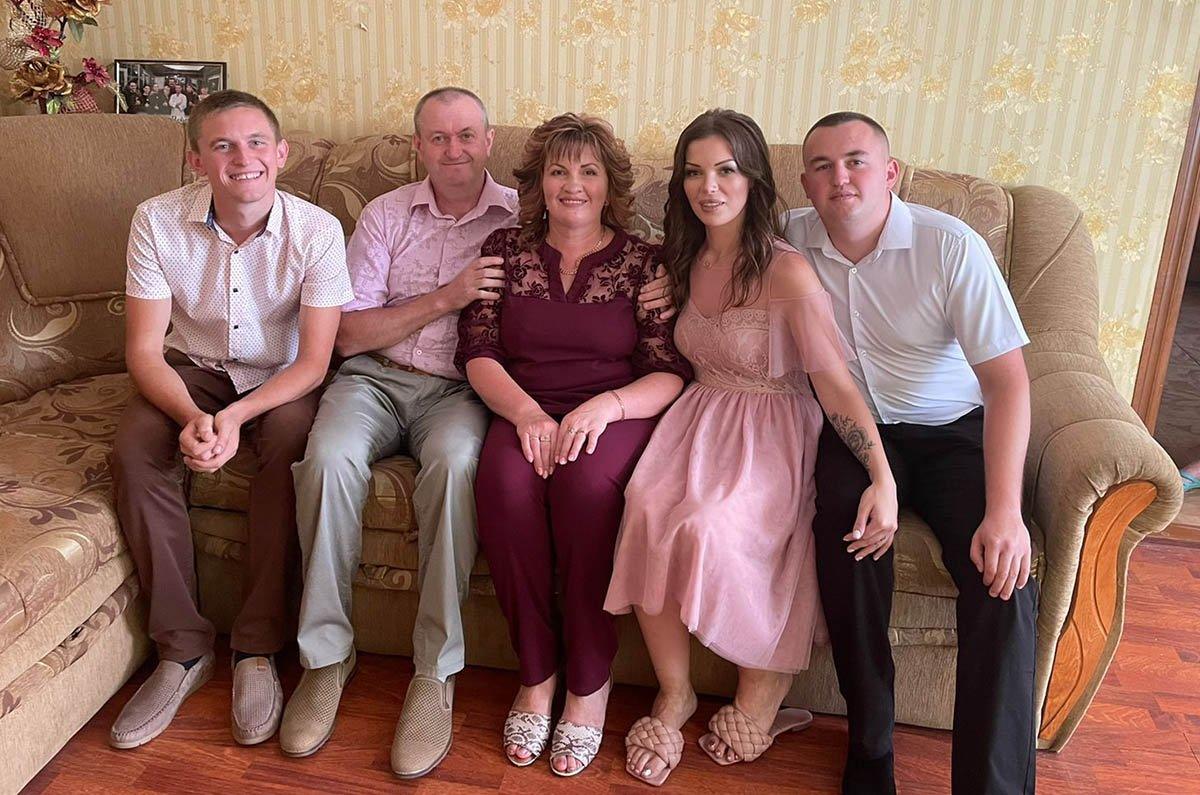
Ivan Simoroz (right) pictured with - from left - his brother, Petro, 21, his father, Vasyl, mother Natalya, and wife, Olena, 27
Officers say Ivan's home was the first to be hit in Borodyanka. The town would become one of the most heavily shelled places in this war.
With extraordinary detail and composure, Ivan continues to show us around the pile of rubble that once was his family's home. Colourful tulips that his grandmother planted poke through.
It's when you look closer that you see fragments of life: one of Polina's shoes, or a dressing gown hanging on a beam.

Ivan's daughter Polina died in hospital later that day
Ivan only took three days off work after the attack. He worked on a military checkpoint nearby and helped people evacuate on buses to safer areas.
It has led to Ivan being recognised with a medal for his service and courage.
His local police force was one of the first to re-establish itself after the Russians pulled out of the Kyiv region. In the time since, more than 1,200 bodies have been recovered.
When I was in a terrible situation, I got help. I believe you have to give that back
So what drives Ivan on?
While work has admittedly been a distraction, he says it's also helping him process his grief. As the inhabitants of Borodyanka and its police force begin to rebuild the town, he's been able to meet people who have gone through similar tragedies.
And he says his close-knit friendships and supportive colleagues have been invaluable.
"Everybody has some misery and troubles in Borodyanka," says Ivan. "And you need to help them. This work, and my friends, is what helps me."
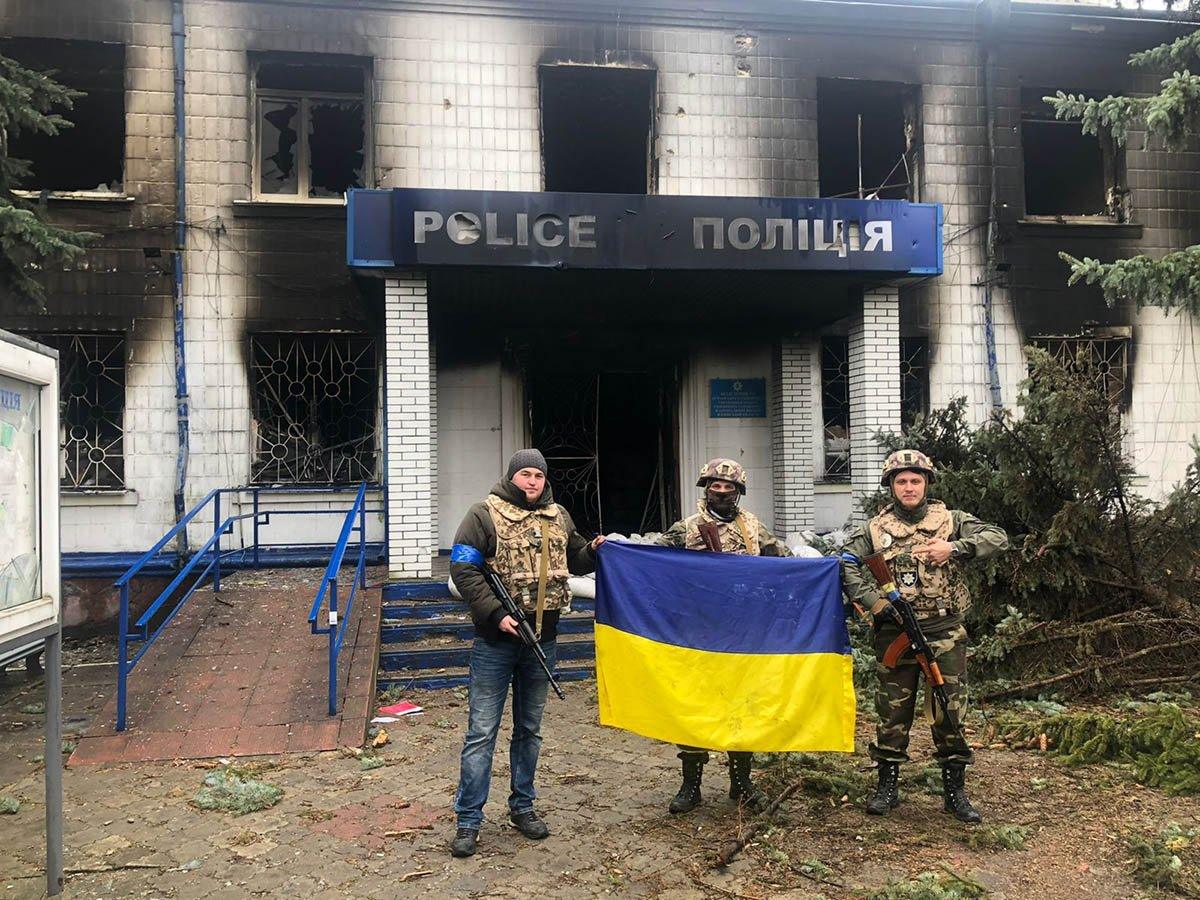
In early April, Ivan and his colleagues returned to Borodyanka after Russian troops retreated
"He is an open, friendly, talented, focused person," says Ivan's boss Vyacheslav Tsyliuryk, the head of Borodyanka's police unit.
"For you to understand one of Ivan's character traits; in six years of work, he hasn't had one day of leave.
"I have never met anyone else so morally strong," he says, adding that he hopes never to meet someone who would need to be as strong after such tragedy.
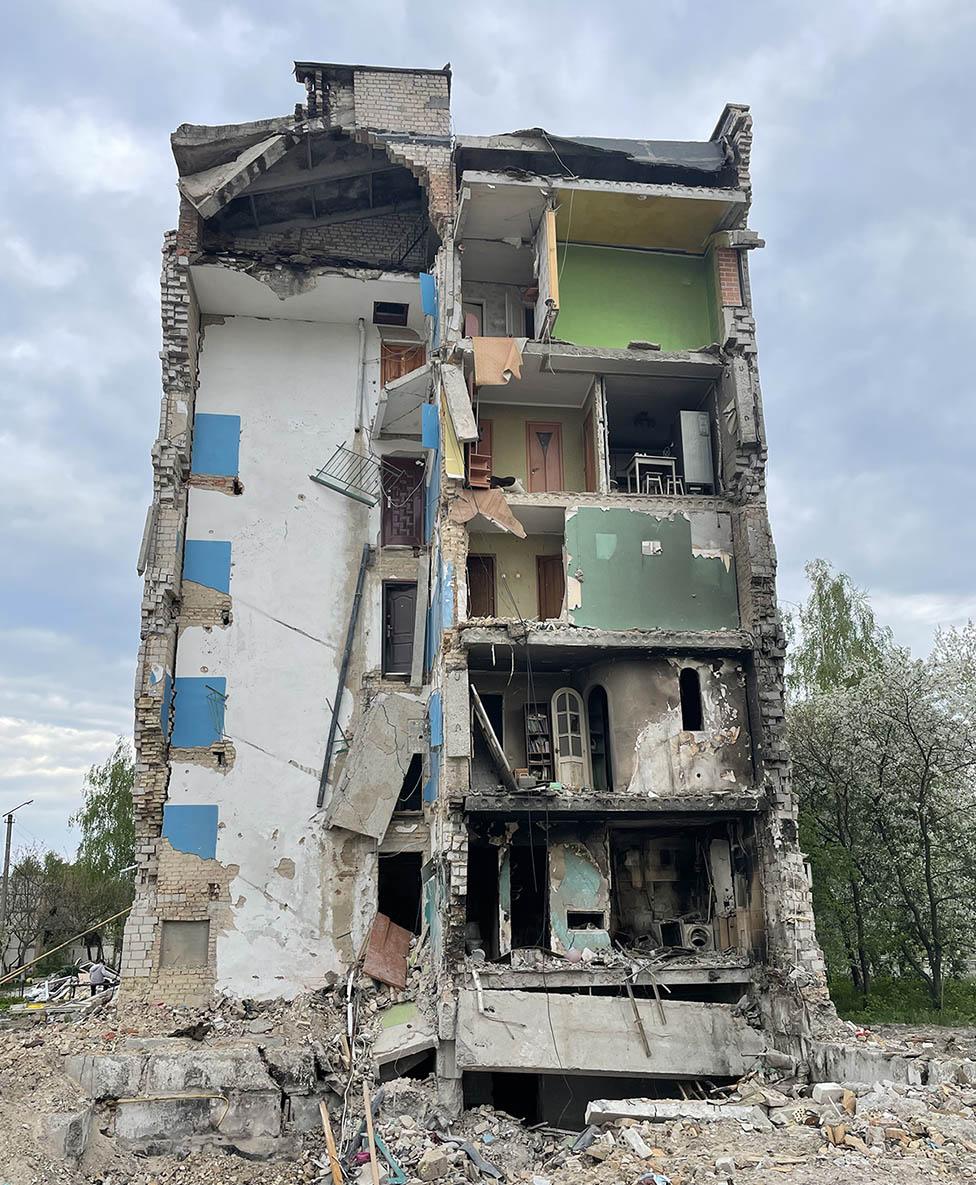
Some buildings in Borodyanka feel like a grim tapestry of previous lives
The destruction of Ivan's home would be replicated across Borodyanka over the following five weeks.
The main road through it is now silent. It is plain to see how uninhabitable it is when you see whole buildings hollowed out or collapsed.
People's homes are exposed where neighbouring buildings had been hit. Bookshelves and still laid kitchen tables are somehow undisturbed in some flats.
"People are fully demoralised," says Vyacheslav. "Learning to live in today's reality."
The moment that causes Ivan's mask to slightly slip, is when he describes something 30km away: six wooden crucifixes on freshly dug sand in a cemetery in the village of Piskivka.
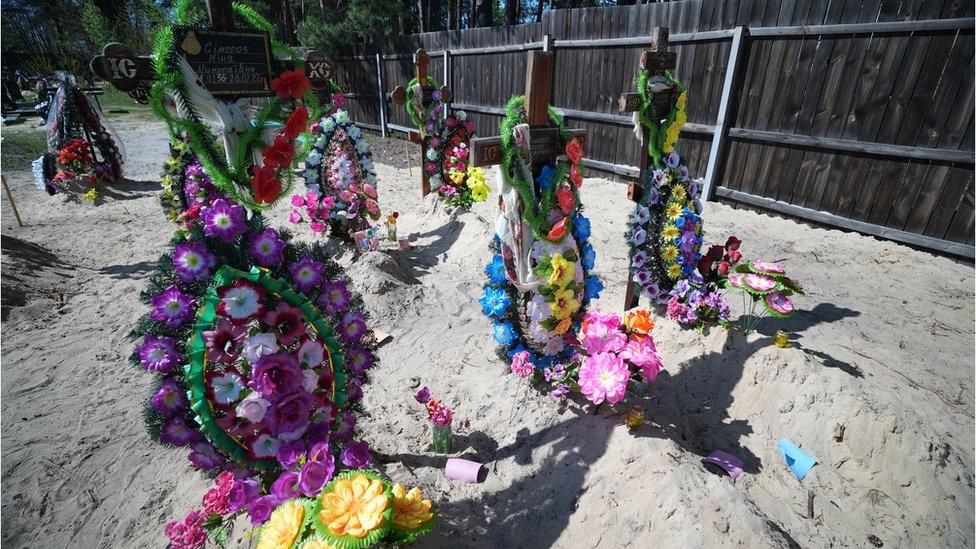
None of Ivan's extended family could make it to the funerals because of the fighting

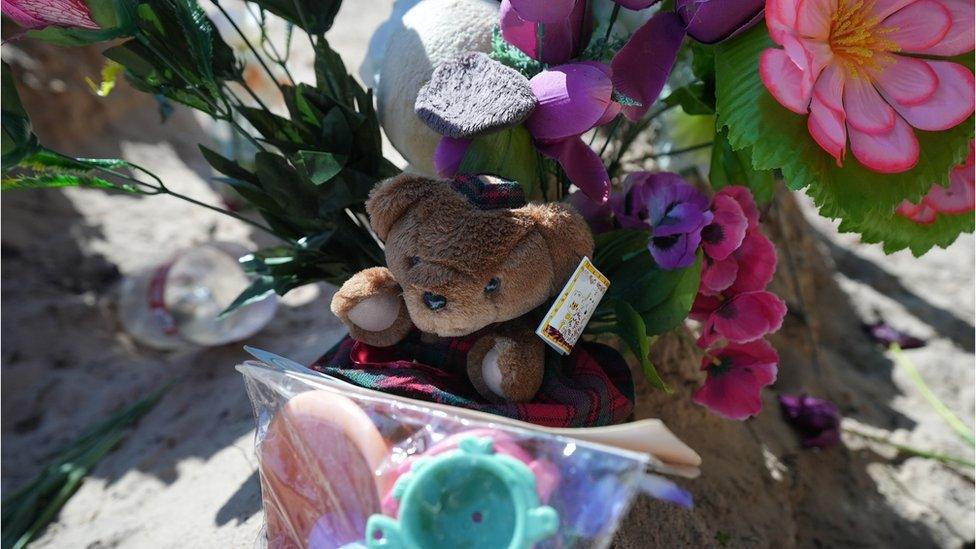
Toys clearly mark Polina's grave, but what really strikes you is what they all have in common, the same date of death: 26. 02. 2022
The brutality and finality of this war encapsulated in a single date, carved six times.
"When you go there, you cry all the time," says Ivan. He swallows hard.
Additional reporting by Siobhan Leahy and Hanna Chornous

War in Ukraine: More coverage
ANALYSIS: The spy war within the war
FRONTLINE: Pinned down by Russian fire in key village
READ MORE: Full coverage of the crisis, external
Related topics
- Published17 May 2022
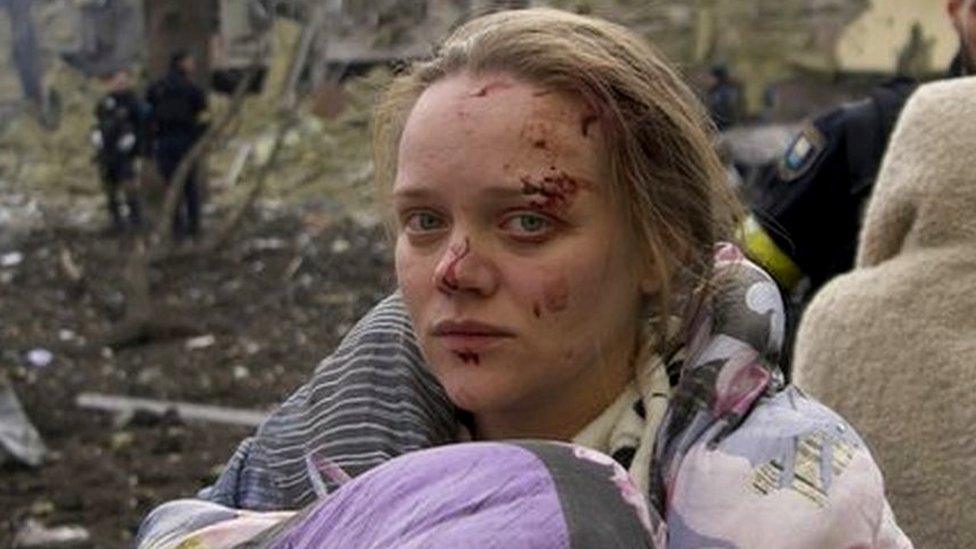
- Published14 May 2022
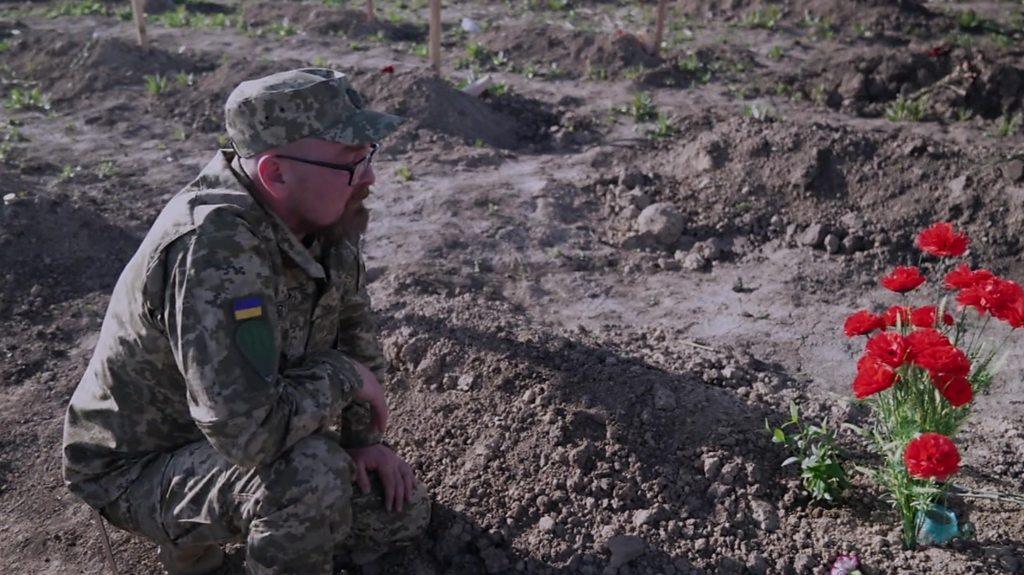
- Published4 July 2022
